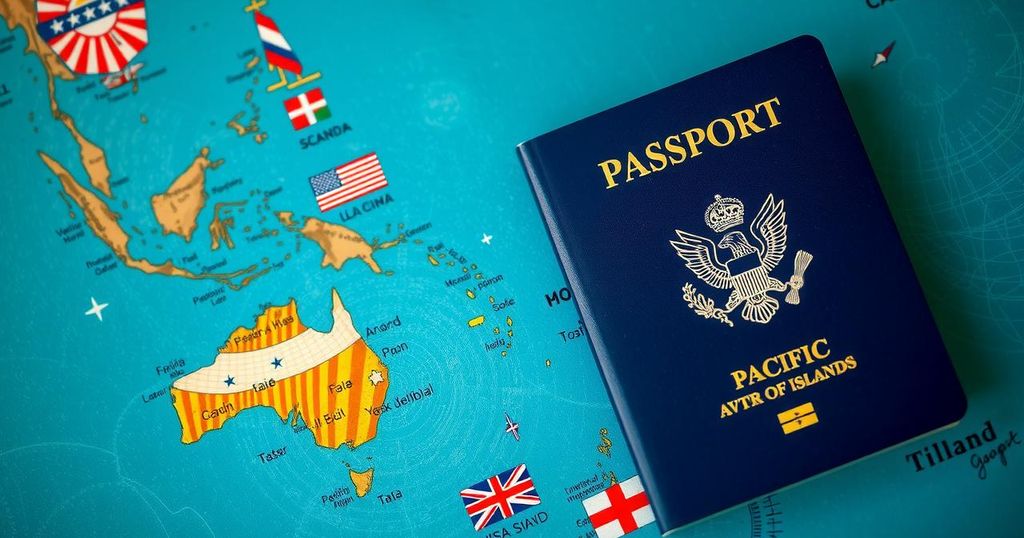Vanuatu recently lost its visa-free access to the EU’s Schengen area due to inadequacies in its citizenship by investment program. This has prompted nations like Solomon Islands and Nauru to consider similar schemes, raising concerns about security and national identity. The experiences of Vanuatu serve as warnings about the need for stringent applicant vetting and regulatory oversight to avoid reputational damage and uphold international relationships.
The European Parliament recently issued a significant reprimand to Vanuatu, marking it as the first nation to lose its visa-free status for the Schengen area. This punitive action arose from Vanuatu’s citizenship by investment (CBI) program, which the EU deemed to lack rigorous vetting and security measures. Rapporteur Paulo Cunha stated that Vanuatu has compromised the EU’s trust by essentially selling its citizenship, highlighting the program’s inadequacies that pose risks to European borders.
Vanuatu’s passport can be purchased for approximately $150,000, and it remains attractive to investors, being marketed as a fast and accessible CBI program. Meanwhile, the Solomon Islands and Nauru have begun exploring similar schemes to bolster public revenue amid economic challenges. The Solomon Islands has drafted CBI legislation, anticipating financial benefits akin to those experienced by Vanuatu. Nauru’s Minister for Climate Change has indicated that their decision to implement a CBI program is driven by the need for climate finance.
Both countries are entangled in a process that could have far-reaching impacts on their international relations, especially in light of Vanuatu’s consequences of losing Schengen access, which reflects on political stability. The Vanuatu experience serves as a cautionary tale about the complexities involved in CBI operations and the necessity of stringent protocols for background checks and relationships with entities like the EU.
As a result of the flaws identified in Vanuatu’s CBI system, including inadequate applicant screening and insufficient infrastructure, there is clear evidence that specialized knowledge and resources are requisite for implementing such programs effectively. The lessons from Vanuatu should serve as critical guidance for Solomon Islands and Nauru to avoid similar pitfalls, as the commodification of citizenship is viewed unfavorably among local populations that value their national identity.
Overall, both countries must heed Vanuatu’s experience and establish robust systems to mitigate risks associated with CBI schemes, as both the economic and reputational ramifications of mishandling these initiatives can be severe.
The recent actions taken by the European Parliament against Vanuatu highlight significant challenges associated with citizenship by investment (CBI) programs. This context underscores the growing interest among Pacific island nations, such as the Solomon Islands and Nauru, in adopting similar schemes as a means to enhance public revenues. The EU’s concerns about the security implications of poorly managed CBI programs emphasize the necessity for rigorous application processes and compliance with international standards.
In conclusion, the experiences of Vanuatu underline the urgent need for Solomon Islands and Nauru to proceed with caution in their pursuit of citizenship by investment programs. Effective implementation necessitates careful planning, specialized resources, and diligent oversight to safeguard against potential reputational and operational failures. The lessons learned from Vanuatu’s missteps are essential to inform strategic decisions moving forward.
Original Source: www.rnz.co.nz






